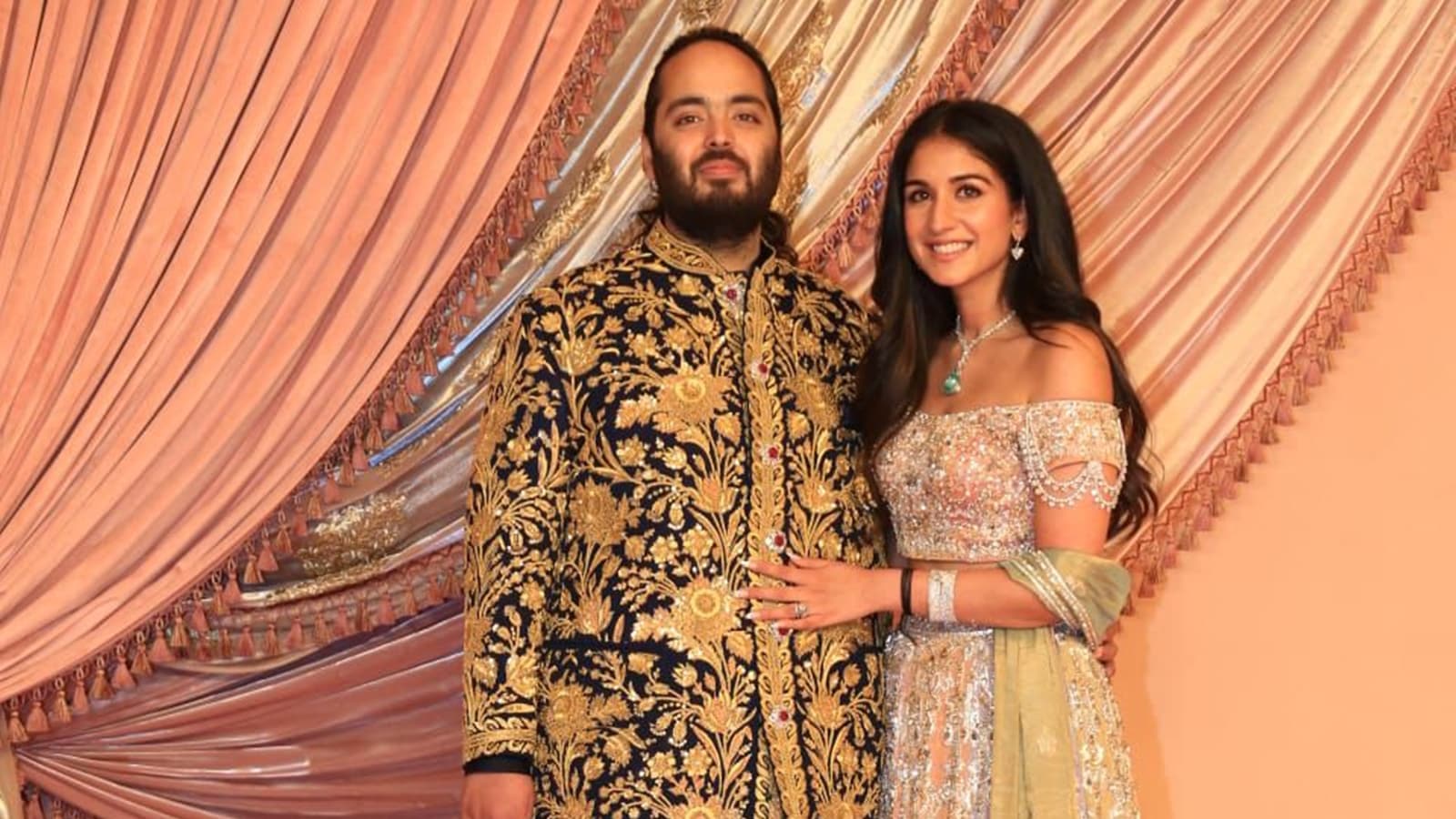The Ambani family thanked their employees at Reliance by distributing an elaborate gift box ahead of the nuptials of Anant Ambani and Radhika Merchant, that is taking place today in the presence of some of the biggest names across the world, including reality TV stars Kim Kardashian and her sister Khloe Kardashian, Samsung Electronics CEO Jay Y Lee, former UK prime minister Boris Johnson, Priyanka Chopra and husband Nick Jonas.
However, the Ambanis’ thoughtful gesture of gifting their employees has captured our attention. Steeped in Indian cultural significance, the box includes an assortment of popular snacks such as aloo bhujia and sev, along with a silver coin.
The inclusion of these items, particularly the silver coin, reflects the deep-rooted customs associated with Indian weddings and showcases the Ambanis’ commitment to sharing their joy with their extended corporate family.
Have you ever wondered about the cultural importance of silver coins in Indian matrimonial celebrations?
Rituu B Jhaveri, founder, Rowa’s Jewels, says, “In Indian weddings, giving silver coins holds deep cultural and traditional significance. These coins symbolize prosperity, purity, and blessings, embodying the wish for a flourishing and harmonious married life. Silver, often associated with the moon, signifies calmness, protection, and emotional balance, making it an auspicious gift for newlyweds.”
Silver is also believed to be a remover of evil eye and negativity and hence it comes as blessings from everyone around and nature, explains Sidharth S Kumaar, astro numerologist.

Furthermore, Paarth Khanna, designer at DRK Jewels states that silver coins have a particular position of “honor and importance.” He continues, “These classic symbols of wealth and benefits represent more than just presents; they also represent the holy connections and fortunate beginnings that signify the joining of two souls.”
The tradition of gifting silver coins can be traced back to ancient times when silver was considered a precious metal with substantial value, adds Jhaveri. It is believed that gifting silver coins brings good fortune and wealth to the couple, ensuring a stable and prosperous future. Additionally, the act of giving silver coins is not limited to the bride and groom; it extends to family and friends as a gesture of goodwill and blessing.”
 Anant Ambani and Radhika Merchant pose together at their starry sangeet ceremony. (Photo: Varinder Chawla)
Anant Ambani and Radhika Merchant pose together at their starry sangeet ceremony. (Photo: Varinder Chawla)
Typical designs and inscriptions found on silver coins given during Indian wedding
According to Jhaveri, “Silver coins given during Indian weddings often feature intricate designs and inscriptions imbued with cultural and religious significance. Common designs include images of deities such as Lakshmi, the goddess of wealth and prosperity, and Ganesh, the remover of obstacles and god of new beginnings. These divine figures are chosen to bestow blessings of wealthfortune, and a smooth, auspicious start to the couple’s married life.
Concurring, Khanna adds that blessings for the couple’s happiness, longevity, and wealth in their marriage are frequently seen in inscriptions. “Every pattern and wording has been thoughtfully selected to bestow blessings and uphold customs that honor marriage and family ties.”
In addition to these, Jhaveri reveals that the coins “frequently bear traditional symbols like the swastika, lotus, or kalash (sacred pot), each carrying its own meaning of good luck, purity, and abundance.”
Despite the symbolic value, why do silver coins given in weddings often have zero resale value?
Silver coins given at weddings often have zero resale value due to their profound sentimental and cultural significance, which far outweighs their monetary value, Jhaveri reveals. “Firstly, these coins are imbued with blessings and are often considered family heirlooms, meant to be cherished and passed down through generations rather than sold. Their purpose is to symbolize love, blessings, and good fortune, not to serve as a financial asset.”
Kumaar agrees and says that another reason for this “are the personalized engravings (which do not relate or appeal to buyer) as well as the fear associated with buying previously used silver coins with deities as not being positive for purchase.”
Jhaveri adds, “The emotional value attached to these gifts, representing familial love, good wishes, and auspicious beginnings, discourages recipients from viewing them purely as commodities.”
The coins hold a place of honor within the family, she says, often displayed and preserved as tokens of the couple’s union and the blessings they received. This deep emotional and cultural attachment ensures that their worth is seen in terms of heritage and sentiment, rather than resale value.
